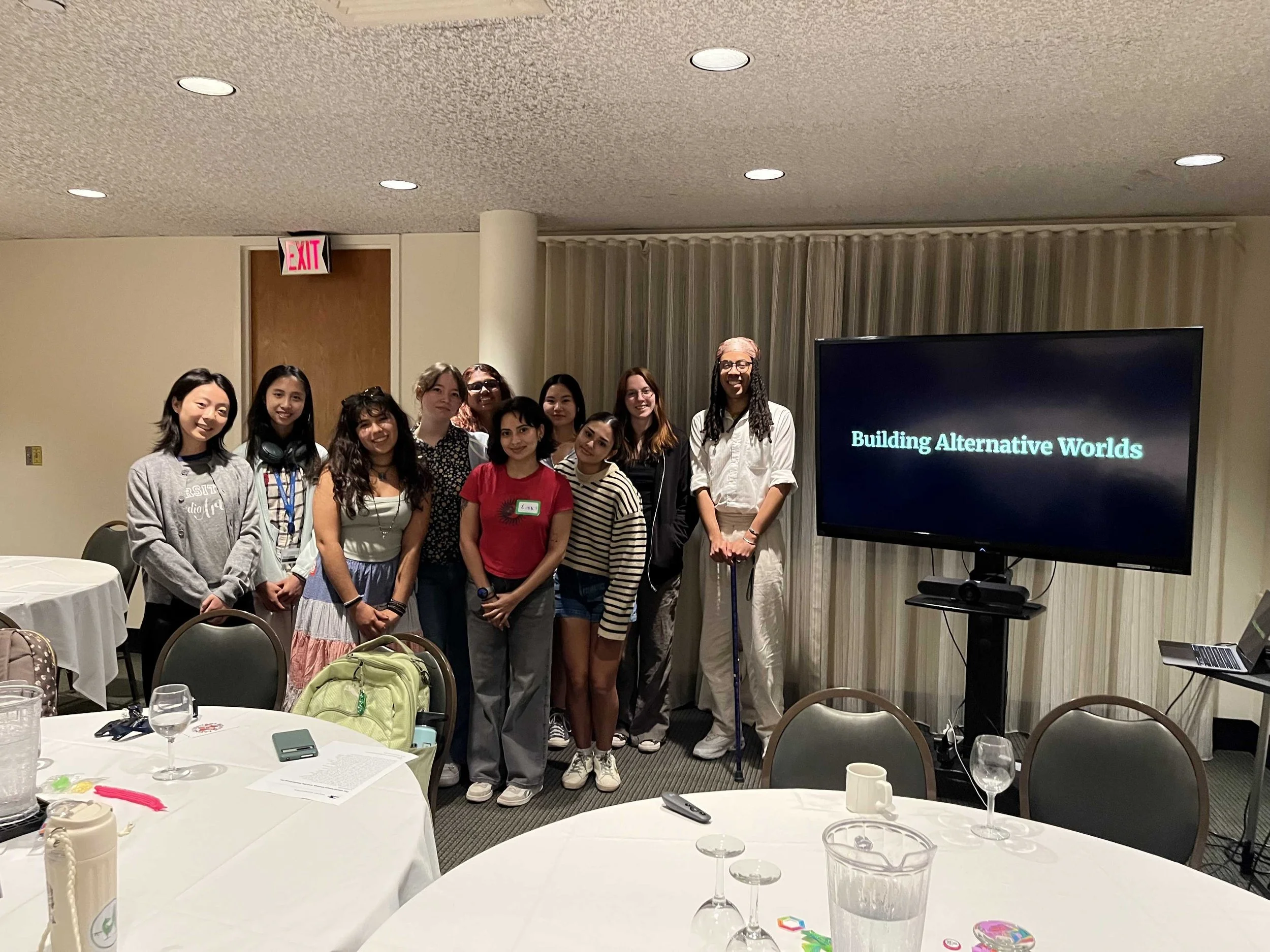Photo by Sarah Berger ’26
Alan Pelaez Lopez came to Mount Holyoke College to teach a creative writing workshop about imagining worlds different than one’s known reality.
By Sarah Berger ’27
Section Editor
On Monday, Sep. 8, students gathered in the Willits-Hallowell Conference Center and Hotel for a creative writing workshop, led by the scholar Alan Pelaez Lopez, who described themself as a creative writer and installation artist from Oaxaca, Mexico. They mentioned that they’re working on a book about how politicians and countries disable people.
At the beginning of the workshop, attendees pushed tables together to cultivate an intimate and conversational vibe. Pelaez Lopez made an effort to address each student by name. Students were primarily from Mount Holyoke College, although one Amherst College student also participated.
The workshop focused on building alternative worlds, or what it might mean to imagine something other than the present. Pelaez Lopez described freedom dreaming, which is a term coined by Robin D.G. Kelley to describe visualizing the future that we want to live in and trying to make that dream a reality. After a general discussion of the terminology needed to participate in the workshop, two different poems were offered up for analysis. “And When People Woke Up, They Were Safe” from Sonia Guiñansaca’s “Nostalgia & Borders,” and “The World Keeps Ending, and the World Goes On” by Franny Choi. Both poems were read twice, once to take it in and a second time to digest and annotate.
Towards the end of the allotted workshop time, participants took out pieces of paper. Pelaez Lopez provided seven lines from Sonia Guiñansaca’s and Franny Choi’s work. Each line was a “ghost line,” and the exercise involved writing for two minutes to each line until the timer went off. The workshop concluded with a discussion of whether the activity was helpful. Participants found that cohesion came more readily than expected, even when it wasn’t intended.
Leah Dutcher ’28 contributed fact-checking.

